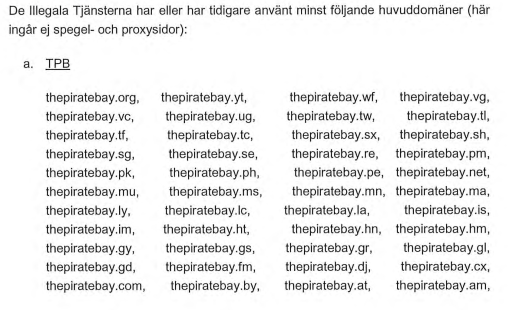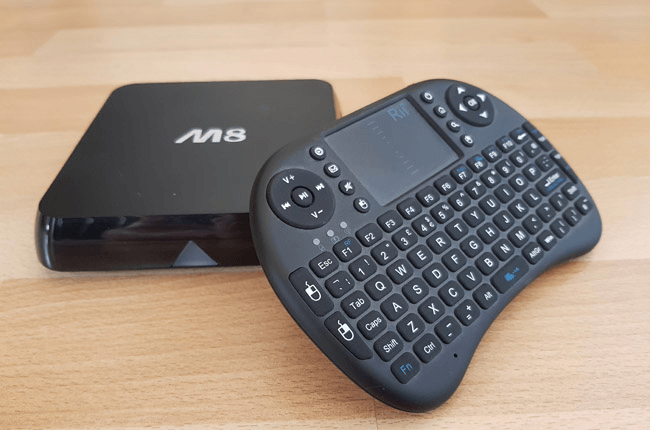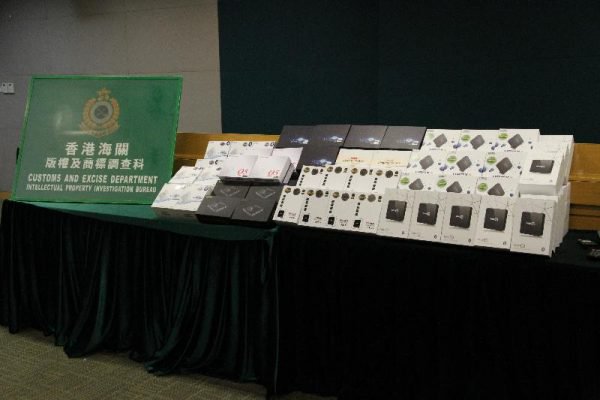 Over the past several years, anyone looking for a piracy-configured set-top box could do worse than search for one on Amazon or eBay.
Over the past several years, anyone looking for a piracy-configured set-top box could do worse than search for one on Amazon or eBay.
Historically, people deploying search terms including “Kodi” or “fully-loaded” were greeted by page after page of Android-type boxes, each ready for illicit plug-and-play entertainment consumption following delivery.
Although the problem persists on both platforms, people are now much less likely to find infringing devices than they were 12 to 24 months ago. Under pressure from entertainment industry groups, both Amazon and eBay have tightened the screws on sellers of such devices. Now, however, both companies have received requests to stem sales from a completetey different direction.
In a letter to eBay CEO Devin Wenig and Amazon CEO Jeff Bezos first spotted by Ars, FCC Commissioner Michael O’Rielly calls on the platforms to take action against piracy-configured boxes that fail to comply with FCC equipment authorization requirements or falsely display FCC logos, contrary to United States law.
“Disturbingly, some rogue set-top box manufacturers and distributors are exploiting the FCC’s trusted logo by fraudulently placing it on devices that have not been approved via the Commission’s equipment authorization process,” O’Rielly’s letter reads.
“Specifically, nine set-top box distributors were referred to the FCC in October for enabling the unlawful streaming of copyrighted material, seven of which displayed the FCC logo, although there was no record of such compliance.”
While O’Rielly admits that the copyright infringement aspects fall outside the jurisdiction of the FCC, he says it’s troubling that many of these devices are used to stream infringing content, “exacerbating the theft of billions of dollars in American innovation and creativity.”
As noted above, both Amazon and eBay have taken steps to reduce sales of pirate boxes on their respective platforms on copyright infringement grounds, something which is duly noted by O’Rielly. However, he points out that devices continue to be sold to members of the public who may believe that the devices are legal since they’re available for sale from legitimate companies.
“For these reasons, I am seeking your further cooperation in assisting the FCC in taking steps to eliminate the non-FCC compliant devices or devices that fraudulently bear the FCC logo,” the Commissioner writes (pdf).
“Moreover, if your company is made aware by the Commission, with supporting evidence, that a particular device is using a fraudulent FCC label or has not been appropriately certified and labeled with a valid FCC logo, I respectfully request that you commit to swiftly removing these products from your sites.”
In the event that Amazon and eBay take action under this request, O’Rielly asks both platforms to hand over information they hold on offending manufacturers, distributors, and suppliers.
Amazon was quick to respond to the FCC. In a letter published by Ars, Amazon’s Public Policy Vice President Brian Huseman assured O’Rielly that the company is not only dedicated to tackling rogue devices on copyright-infringement grounds but also when there is fraudulent use of the FCC’s logos.
Noting that Amazon is a key member of the Alliance for Creativity and Entertainment (ACE) – a group that has been taking legal action against sellers of infringing streaming devices (ISDs) and those who make infringing addons for Kodi-type systems – Huseman says that dealing with the problem is a top priority.
“Our goal is to prevent the sale of ISDs anywhere, as we seek to protect our customers from the risks posed by these devices, in addition to our interest in protecting Amazon Studios content,” Huseman writes.
“In 2017, Amazon became the first online marketplace to prohibit the sale of streaming media players that promote or facilitate piracy. To prevent the sale of these devices, we proactively scan product listings for signs of potentially infringing products, and we also invest heavily in sophisticated, automated real-time tools to review a variety of data sources and signals to identify inauthentic goods.
“These automated tools are supplemented by human reviewers that conduct manual investigations. When we suspect infringement, we take immediate action to remove suspected listings, and we also take enforcement action against sellers’ entire accounts when appropriate.”
Huseman also reveals that since implementing a proactive policy against such devices, “tens of thousands” of listings have been blocked from Amazon. In addition, the platform has been making criminal referrals to law enforcement as well as taking civil action (1,2,3) as part of ACE.
“As noted in your letter, we would also appreciate the opportunity to collaborate further with the FCC to remove non-compliant devices that improperly use the FCC logo or falsely claim FCC certification. If any FCC non-compliant devices are identified, we seek to work with you to ensure they are not offered for sale,” Huseman concludes.
Source: TF, for the latest info on copyright, file-sharing, torrent sites and more. We also have VPN reviews, discounts, offers and coupons.

 While the majority of downloads over the past 15 years have featured pre-recorded content, one of the fastest growing areas in 2018 features live TV.
While the majority of downloads over the past 15 years have featured pre-recorded content, one of the fastest growing areas in 2018 features live TV. Last year, the Swedish Patent and Market Court of Appeal ordered local Internet provider Bredbandsbolaget
Last year, the Swedish Patent and Market Court of Appeal ordered local Internet provider Bredbandsbolaget 



 PUBG and Epic Games, two gaming heavyweights, are going head to head in court.
PUBG and Epic Games, two gaming heavyweights, are going head to head in court.